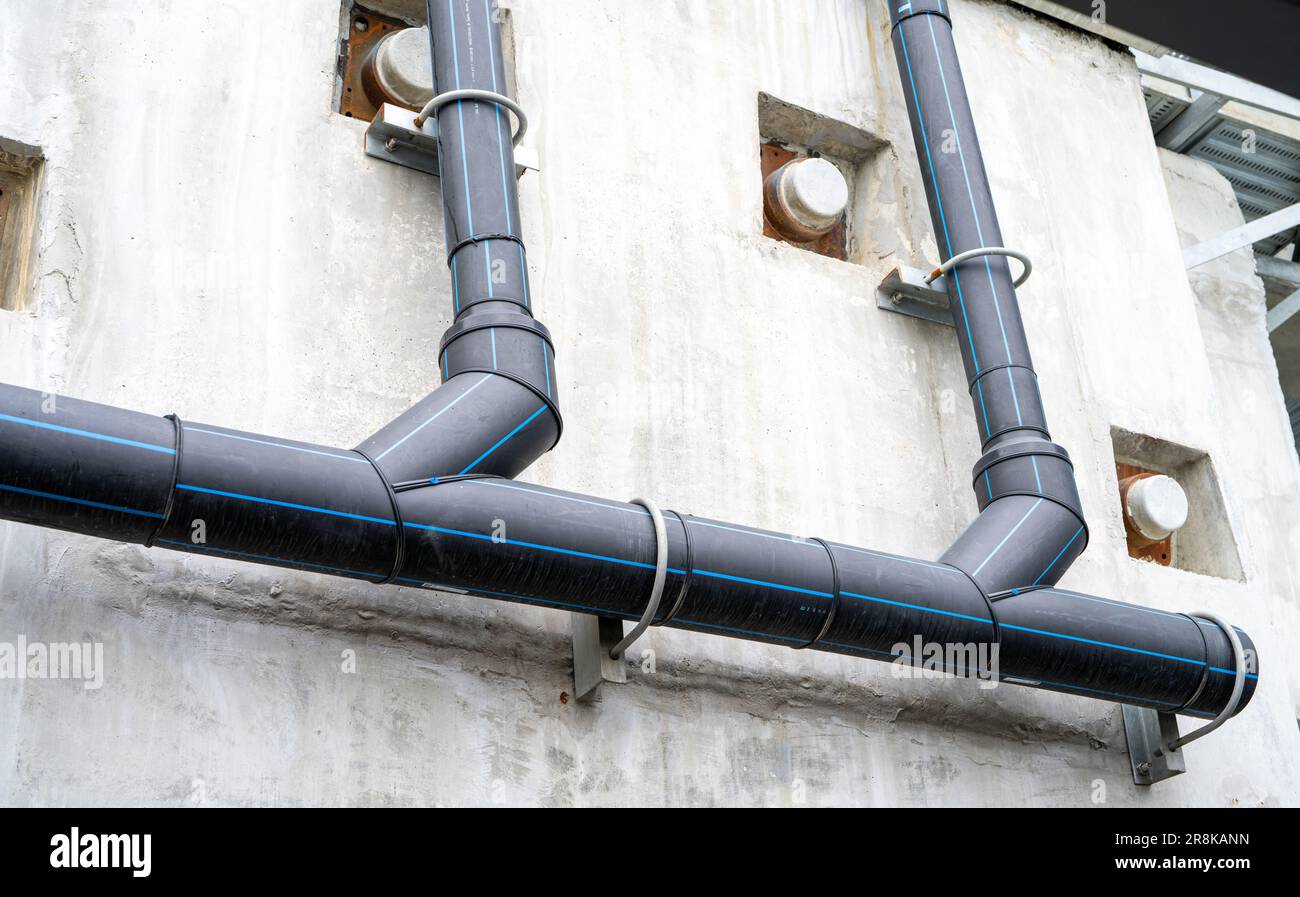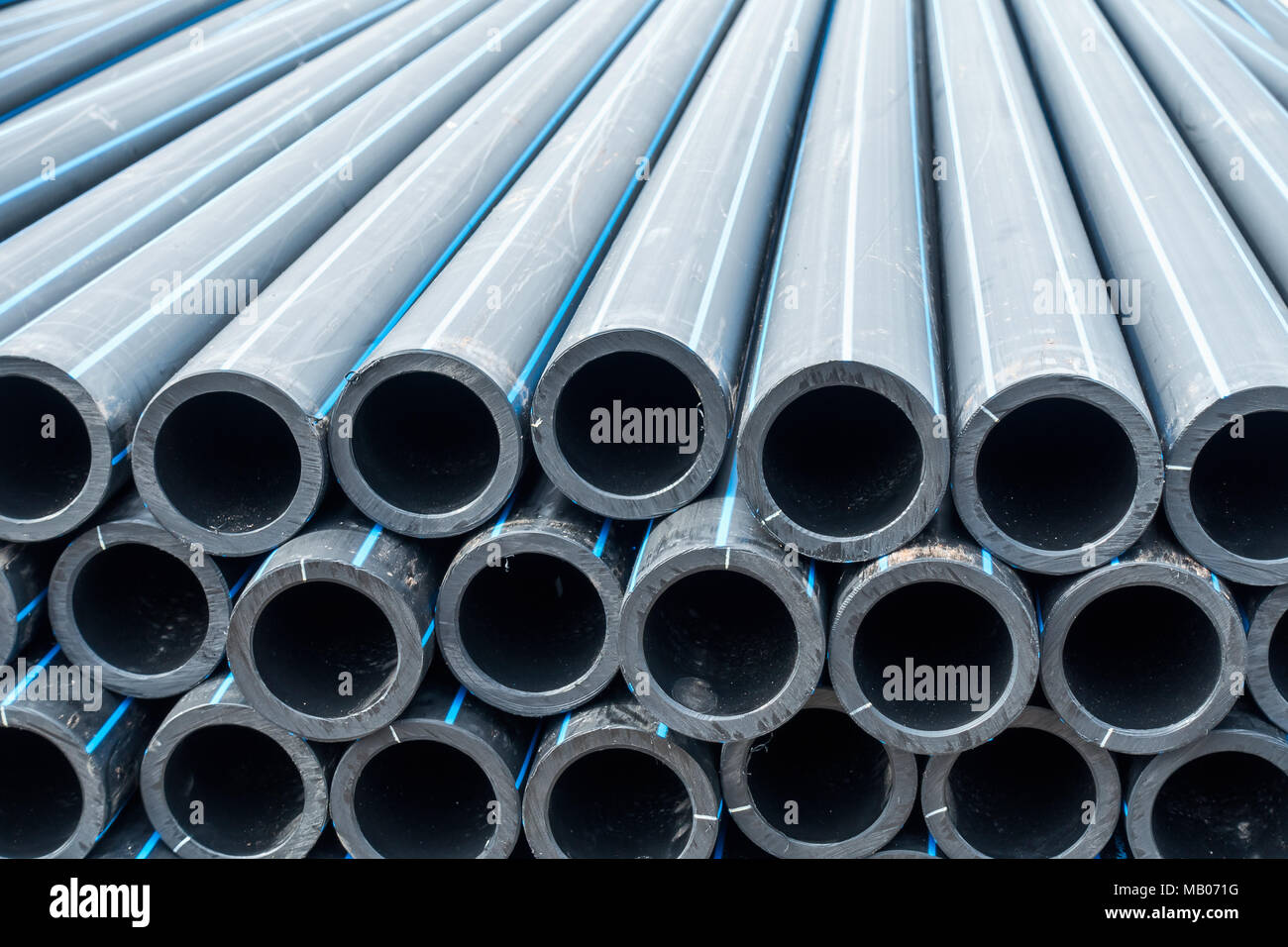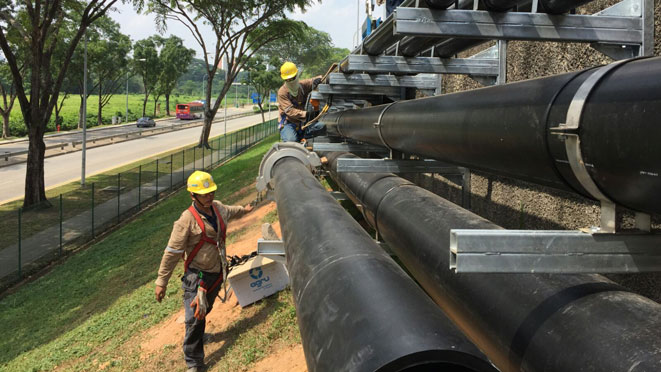When a Pipeline Manufacturer improves long-term infrastructure success
Wiki Article
Checking Out the Leading Pipeline Manufacturers: High Quality, Dependability, and Technology
The pipeline manufacturing sector stands at the crossway of integrity, innovation, and top quality, driven by leading companies such as Tenaris and Vallourec. These suppliers are not only committed to creating high-performance materials however are also pioneering sustainable methods that deal with modern-day environmental worries (Pipeline Manufacturer). As we take a look at the standards that define excellence in pipeline remedies, it ends up being obvious that the landscape is rapidly developing. What certain innovations are emerging, and just how are these advancements shaping the future of pipeline facilities? The responses might redefine industry requirements in manner ins which are not yet totally understoodLeading Manufacturers Summary
In the domain of pipeline manufacturing, numerous principals become leaders, each contributing significantly to the industry's landscape. Companies such as Tenaris, Vallourec, and JFE Steel have developed themselves as frontrunners by constantly providing premium items that fulfill strict market criteria. Tenaris, renowned for its innovative options, focuses on smooth and welded pipes, catering mostly to the oil and gas market. Vallourec, a French multinational, concentrates on the manufacturing of premium tubular services, highlighting sustainability and advanced modern technology in its manufacturing processes.JFE Steel, a major Japanese manufacturer, is recognized for its substantial array of steel pipes, especially those made use of in energy and framework tasks. Their commitment to r & d has actually allowed them to generate high-performance materials that endure extreme ecological problems. Furthermore, business like united state Steel and National Oilwell Varco have increased their market existence by expanding their product offerings and boosting operational performances.
These leading producers not just dominate the marketplace but additionally drive development within the sector, setting standards for quality and reliability that players aspire to attain. Their contributions are vital for meeting the increasing demand for durable and effective pipeline remedies worldwide.
Criteria for Quality Assessment
Quality assessment in pipeline manufacturing hinges on 2 crucial standards: product sturdiness criteria and manufacturing process efficiency. Making certain that materials meet extensive longevity benchmarks is important for the long life and reliability of pipelines. In addition, maximizing the manufacturing procedure can enhance productivity while preserving excellent quality, eventually affecting general efficiency and safety and security.Product Toughness Specifications
Guaranteeing the durability and dependability of pipeline materials is vital for preserving infrastructure honesty and functional effectiveness. Product toughness requirements play a vital duty in examining the top quality of pipes, dictating the performance and lifespan of the materials used in construction. Manufacturers must comply with an array of strenuous criteria, including those established by companies such as ASTM International and the American Petroleum Institute (API)These standards evaluate numerous elements, including rust resistance, tensile strength, and exhaustion performance. For instance, pipes made use of in destructive atmospheres require products that can stand up to chemical destruction, while those based on high-pressure conditions have to exhibit phenomenal tensile toughness.
Furthermore, factors such as temperature level fluctuations and ecological conditions must be considered, as these can considerably affect material habits gradually. Manufacturers often utilize advanced screening approaches, including increased aging tests, to imitate long-term wear and guarantee that materials meet or exceed industry criteria.
Manufacturing Process Efficiency
Manufacturers' capability to maximize manufacturing process performance is vital for creating high-quality pipelines that satisfy stringent sector criteria. Efficiency in producing straight affects price administration, manufacturing timelines, and total product integrity. To accomplish this, leading pipeline suppliers execute sophisticated strategies such as lean manufacturing, automation, and real-time data analytics.Lean manufacturing concepts are vital in reducing waste and making the most of source use. By enhancing procedures and eliminating redundancies, makers can enhance productivity while making certain consistent quality. Automation technologies, including robotics and computer numerical control (CNC) devices, play an essential function in enhancing precision and decreasing human error, consequently raising the dependability of the final product.
Additionally, making use of real-time data analytics allows manufacturers to monitor manufacturing procedures continuously, enabling them to recognize traffic jams and make prompt modifications. This proactive technique not just improves efficiency but additionally sustains quality control procedures by making certain compliance with regulative criteria.
Reliability in Pipeline Solutions
Reliability in pipeline remedies is vital, as it straight impacts the safety and security and performance of liquid transportation systems. Secret factors include the durability of products utilized, adherence to strenuous testing and certification standards, and the unification of innovative product options that enhance efficiency. Comprehending these elements is crucial for makers aiming to provide dependable pipeline framework.Value of Resilience
Attaining resilience in pipeline remedies is important, as it directly influences the long-term efficiency and safety of facilities. Long lasting pipes are important for lessening upkeep prices and minimizing the chance of tragic failures. This integrity is particularly important in sectors such as oil and gas, water supply, and wastewater monitoring, where the consequences of pipeline failure can be extreme, both economically and ecologically.The products and making processes used by pipeline producers play a considerable duty in establishing the durability of the last product. Utilizing high-quality raw products, progressed technologies, and ingenious design concepts ensures that pipelines can hold up against different stress factors, including pressure variations, temperature level variants, and corrosive settings.
The durability of pipes is carefully connected to their capability to resist external aspects such as soil motion, seismic activity, and chemical direct exposures. Efficient rust security approaches, such as finishes and cathodic protection, additionally boost the longevity of pipes, safeguarding them versus wear and tear in time.
Buying sturdy pipeline remedies inevitably converts to enhanced operational effectiveness, reduced downtime, and boosted safety, affirming the important relevance of durability in modern pipeline manufacturing.
Evaluating and Qualification Standards
In the domain of pipeline options, strenuous testing and certification standards are important to assure the reliability and security of framework. These standards function as criteria for examining the performance and toughness of pipeline products and systems, confirming they fulfill details regulative and industry demands.Evaluating procedures generally incorporate numerous methods, including stress testing, hydrostatic evaluations, and non-destructive screening strategies. These assessments are vital for recognizing potential weaknesses or issues in the materials before they are released in real-world applications. Furthermore, accreditation by identified organizations assurances that manufacturers stick to established standards, which cultivates trust fund amongst stakeholders, including engineers, specialists, and end-users.
Lots of top pipeline makers involve in continual monitoring and improvement of their testing protocols to adjust to developing industry criteria and technological developments. Compliance with criteria such as ASTM, ASME, and ISO not only improves product integrity but also minimizes the risk of environmental events connected with pipeline failings.
Innovative Material Solutions
The advancement of ingenious product solutions has transformed the landscape of pipeline manufacturing, improving both efficiency and longevity. Advanced products such as high-density polyethylene (HDPE), cross-linked polyethylene (PEX), and composite materials have actually become game-changers, providing exceptional resistance to deterioration, temperature level variations, and pressure variants. These products not only extend the lifespan of pipes yet likewise decrease maintenance prices, ensuring reliable long-lasting performance.Furthermore, manufacturers are significantly taking on wise products that integrate sensors for real-time surveillance. This technology enables proactive maintenance, considerably boosting dependability by identifying leaks or structural weak points before they rise into important failings. The assimilation of nanotechnology has actually additionally caused the growth of layers that boost the longevity of pipelines versus abrasion and chemical direct exposure.
Sustainability is one more vital focus, with suppliers checking out bio-based compounds and recyclable materials that lessen environmental impact. As regulatory requirements remain to evolve, the focus on innovative material remedies comes to be vital in conference rigorous safety and security and ecological demands. Ultimately, these advancements not just boost the integrity of pipeline systems but likewise add to the overall effectiveness and sustainability of power transport infrastructures.
Advancements in Pipeline Modern Technology
Advancements in pipeline modern technology are transforming the market by boosting efficiency, safety, and environmental sustainability. Recent improvements concentrate on clever pipeline systems that make use of sensing units and IoT technology to keep track of conditions in genuine time, allowing aggressive maintenance and minimizing the threat of failings. These systems can detect leaks, stress changes, and various other abnormalities, enabling quick feedback and decreasing ecological impact.In addition, the advancement of sophisticated materials, such as composite and corrosion-resistant alloys, considerably extends the lifespan and reliability of pipelines. HDPE Pipe Supplier (American Plastics LLC HDPE Pipeline Manufacturer). These products lower maintenance expenses and improve efficiency in rough atmospheres, making them suitable for water, gas, and oil transportation
Automation and robotics are playing an essential role in pipeline building and inspection. Drones and robotic devices facilitate surveys American Plastics LLC HDPE Pipeline Manufacturer and analyses of hard-to-reach locations, making sure complete assessments without endangering safety and security.
Ingenious designs, such as modular pipeline systems, permit for better flexibility in installment and modification, providing to the dynamic requirements of the power market. Together, these technical innovations not only enhance operational efficiency however also contribute to an extra sustainable and resilient pipeline infrastructure, leading the way for a greener future.
Situation Researches of Success
Across various markets, successful applications of innovative pipeline technologies demonstrate significant renovations in functional effectiveness and safety and security. One notable situation is the implementation of clever pipeline monitoring systems in the oil and gas sector, where real-time data analytics have actually decreased leakage detection times by over 50%. This not just minimizes environmental risks but additionally enhances the general honesty of pipeline facilities.
In addition, a significant manufacturer carried out robotic inspection modern technologies in its pipeline maintenance operations, resulting in a 40% improvement in evaluation efficiency. This approach has streamlined upkeep timetables and significantly lowered downtime.
These case researches highlight just how prominent pipeline makers are leveraging innovative innovations to foster dependability and functional excellence, eventually establishing new standards for the industry. As these successes proceed to unfold, they lead the way for additional innovations in pipeline manufacturing and administration.

Environmental Sustainability Practices
Regularly, pipeline producers are focusing on environmental sustainability methods to alleviate their ecological footprint and improve the long life of their products. This dedication is mirrored in numerous initiatives targeted at minimizing waste, preserving power, and utilizing sustainable materials throughout the manufacturing process.
Several suppliers are taking on advanced innovations that decrease emissions and power consumption. The integration of automated systems and energy-efficient machinery helps simplify production while lowering dependence on fossil gas. In addition, firms are increasingly transforming to eco-friendly products, such as recycled steels and bioplastics, which not just minimize the ecological influence but likewise advertise a round economy.
Furthermore, pipeline makers are applying strenuous lifecycle analyses to review the ecological ramifications of their products from inception to disposal. This technique enables them to identify possibilities for enhancement and foster liable sourcing and waste monitoring methods.
Collaboration with ecological companies further boosts these initiatives, as producers seek to straighten their operations with global sustainability goals. Inevitably, these ecological sustainability practices not only add to a healthier world yet also placement makers as accountable leaders in the industry, interesting ecologically mindful stakeholders and customers alike.
Future Patterns in Pipeline Manufacturing
As the need for much more lasting and reliable infrastructure expands, pipeline manufacturing is poised for considerable advancements that will improve the sector. Key patterns prepared for in the coming years consist of the integration of sophisticated products, such as composite and corrosion-resistant alloys, which improve resilience while lessening ecological influence. Manufacturers are also expected to take on innovative production techniques, like additive manufacturing and automation, to enhance processes, lower waste, and reduced costs.The rise of smart pipeline technologies, including sensors and IoT devices, will make it possible for real-time monitoring and predictive upkeep, thus enhancing safety and operational performance. This digital transformation will not only optimize resource administration yet also facilitate conformity with rigorous ecological guidelines.
Sustainability will remain a central emphasis, driving producers to purchase environmentally friendly practices, consisting of energy-efficient manufacturing methods and reusing campaigns. As the international focus on climate change escalates, pipeline makers will need to adjust by developing solutions that meet both financial and ecological needs.
Frequently Asked Inquiries

What Industries Mostly Make Use Of Pipeline Products From These Manufacturers?
Pipeline items are primarily made use of in markets such as oil and water, wastewater and gas management, chemical building and construction, processing, and mining. These fields depend on effective, sturdy, and secure transportation of materials and fluids.
Exactly How Do Manufacturers Make Certain Compliance With International Pipeline Criteria?
Manufacturers ensure conformity with international pipeline standards by executing rigorous top quality control procedures, performing routine examinations, adhering to established regulatory frameworks, and buying worker training to advertise recognition and understanding of security and top quality requirements.What Is the Average Life Expectancy of Pipelines From Leading Manufacturers?
The ordinary lifespan of pipelines from leading manufacturers normally varies from 30 to 100 years, relying on product, ecological conditions, and maintenance techniques. HDPE Pipe Supplies Midland TX. Normal assessments and adherence to market standards significantly affect long life and efficiencyAre There Certifications Certain to Pipeline Production Quality?
Yes, various qualifications exist for pipeline making high quality, including ISO 9001 for top quality administration systems and API standards details to pipes. These accreditations guarantee adherence to rigorous security, efficiency, and environmental criteria within the industry.Just How Do Manufacturers Handle Pipeline Upkeep and Repairs?
Manufacturers usually execute an aggressive maintenance approach that includes normal evaluations, checking systems for very early discovery of issues, and a structured repair protocol. This technique guarantees pipeline stability, lessens downtime, and enhances overall functional effectiveness.Quality assessment in pipeline manufacturing hinges on 2 crucial requirements: material longevity criteria and making procedure effectiveness - Pipeline Manufacturer. Material sturdiness requirements play a vital duty in evaluating the quality of pipes, determining the performance and life-span of the products utilized in construction. The products and making procedures used by pipeline makers play a significant function in establishing the sturdiness of the final product. The ordinary lifespan of pipelines from leading manufacturers usually ranges from 30 to 100 years, depending on product, environmental conditions, and maintenance practices. Yes, various certifications exist for pipeline producing high quality, including ISO 9001 for high quality administration systems and API requirements certain to pipes
Report this wiki page